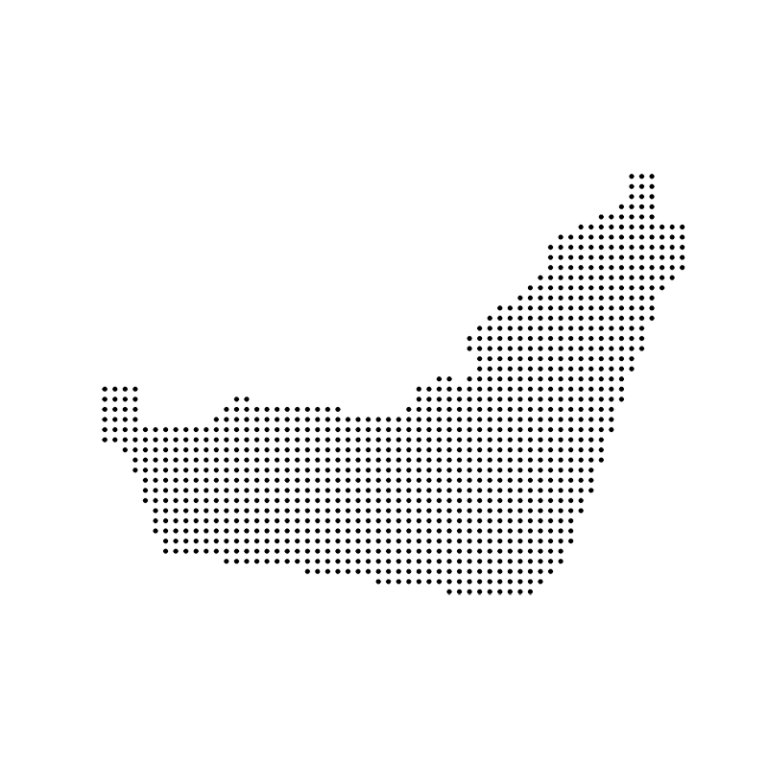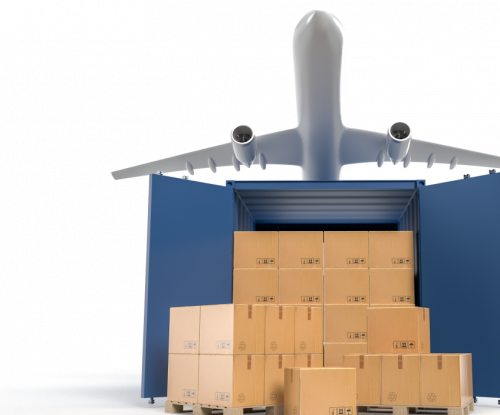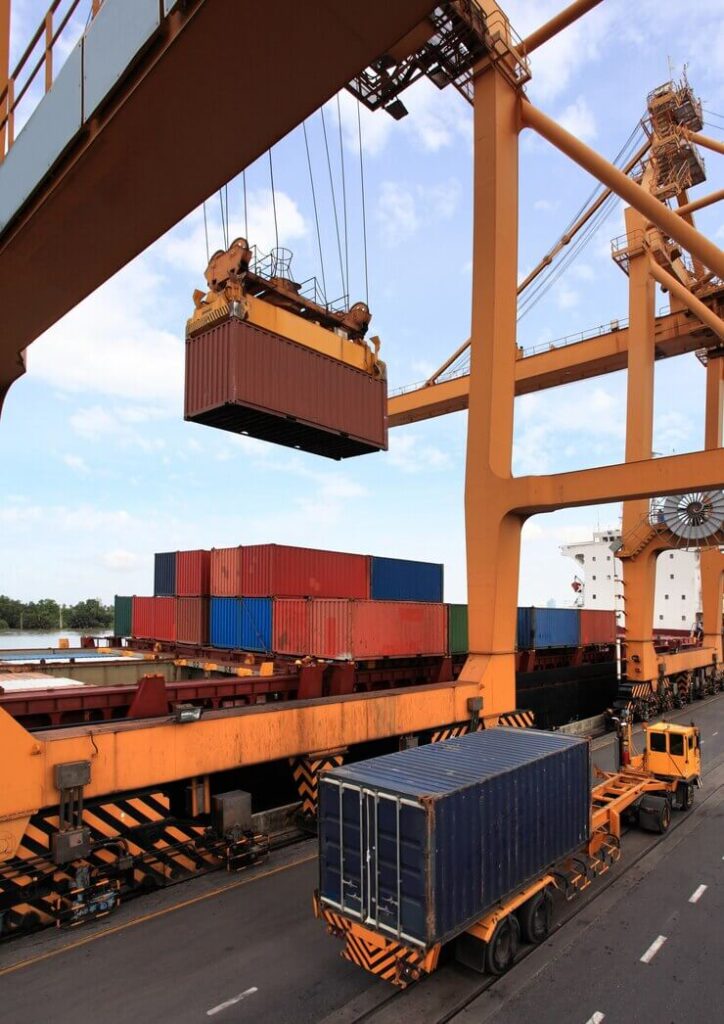Your Complete Guide to UAE Import and Export Procedures
The UAE offers a lucrative business opportunity due to its strategic location, strong economy, and growing demand for various goods and services. However, navigating the import and export procedures in the UAE requires careful planning and compliance with the country’s customs and import/export laws.
We understand how complicated the entire process can be. So, we prepared a guide below that you can follow to ensure your trade’s success.

Importing to Dubai Mainland via Dubai Ports
Generally, to engage in direct imports to the Dubai mainland, you will be required to provide the following essential documents:
- Original copies of the bill of lading
- Commercial invoice
- Packing list
- Certificate of origin
Three to four days prior to the vessel’s scheduled arrival, it is imperative for the importer to submit the original bill of lading to the shipping agent. In response, the shipping agent will issue a delivery order to the importer, bearing an expiration date. It is crucial to complete all necessary procedures, including cargo clearance formalities outlined below, by this expiration date. Failure to do so will necessitate an extension request from the shipping agent, incurring additional fees.
For clearance purposes, the importer must initiate the Import Declaration application with UAE Customs. This should be executed online through the dubaitrade.ae platform.
The payment of customs duties and associated fees can also be conveniently settled online, employing one of three methods: via the CDR account, credit card, or direct debit. Subsequent to payment, the importer can obtain a printable copy of the Customs Import Declaration.
When dealing with restricted or duty-exempted goods, a distinct procedure applies. The importer must first obtain the requisite permits from the relevant authorities before submitting the Customs Import Declaration. In cases of importing goods from outside the UAE, the following original documents must be submitted in order:
- Commercial invoice, detailing goods descriptions, quantities, and the total value of each item
- Certificate of Origin
- Comprehensive packing list, specifying weight, packing method, and HS code for each item
- Import Permit obtained from the competent authorities
The data contained within these documents undergoes scrutiny by UAE Customs, which retains the authority to mandate cargo inspections if deemed necessary. Port dues are payable at the importer’s discretion following the receipt of the delivery order from the shipping agent. Payments can be effortlessly made online via the UAE Trade portal, by credit card, e-dirham card, or direct debit.
To monitor the arrival of vessels, importers can utilise the Vessel Enquiry e-service. Additionally, the Container Enquiry e-service facilitates the tracking of container discharge status. Once the container is offloaded, importers can employ the Haulier Nomination Service to designate a transportation company responsible for cargo handling.
The management of truck movements within the port is orchestrated via an e-token system. These e-tokens are generated through the Dubai Trade portal, each bearing a unique ID number linked to a specific container, as well as a designated day and time slot for pickup or drop-off. Importers should furnish the e-token number to their chosen haulier, who will subsequently present it to the port’s security gate. The logistics provider then coordinates the delivery of containers to the Haulier in accordance with the e-token information. Upon container retrieval, the Haulier issues a receipt for each container collected from the port.
In instances where an inspection is mandated, it falls within the purview of the Haulier to transport the cargo to the relevant competent authority. Upon successful inspection clearance, an inspection report is issued, and a copy of this report must be presented to the port’s security staff for exit authorisation.

Importing to Free Trade Zones
All UAE free trade zones are considered integral parts of the country’s territory; however, they fall outside the scope of the customs territory. Consequently, customs control procedures differ within these zones. When conducting imports from foreign countries, individuals or businesses holding free zone licences enjoy exemptions from customs duties. Furthermore, the storage of goods within free zones is permitted for an indefinite duration, contingent upon the type and validity of the licence held.
Here are the general prerequisites for such transactions:
- The importer must possess a valid importer code issued by Customs.
- The imported goods must align with the business activities specified in the company's licence.
- Goods must physically arrive at the free zone within 72 hours from the date of the customs declaration.
- The integrity of goods must be maintained; they must not be opened, altered, or distributed before reaching the free zone and receiving official endorsement from Customs.
- Goods must undergo inspection upon their entry into the free zone.
- A deposit of AED 500 is required if the requisite documents are not promptly submitted.
Required Documentation
To successfully navigate customs procedures at free zones in the UAE, the following essential documents must be presented at Customs centres within these zones:
- Delivery order issued by the shipping agent to the company holding a valid free zone licence
- Delivery note provided by the free zone authorities, confirming the acceptance of the goods
- A secondary copy of the Bill of Lading (for sea shipments), the original Airway Bill (for air shipments), or the Road Manifest (for land shipments).
- Import permit obtained from the relevant competent authorities (for restricted goods)
- A comprehensive sales invoice detailing goods descriptions, quantities, and the respective value of each item
- An original and detailed invoice from the shipper, including the classification under HS (Harmonized System) Codes
- Certificate of origin
- Detailed packing list, specifying the weight, packing method, and HS code for each item
- Import Goods Declaration form
Upon submission of these documents, a ‘Free Zone Transit In’ (bill of entry) is issued, facilitating the clearance of goods into the free zone. After customs clearance, the goods may be retrieved, subject to payment of storage, handling, and other pertinent port charges.
Inspection is mandatory for all goods, with the exception of those originating from the local market. Seals on containers must remain intact and may only be broken in the presence of a customs inspector.
Prohibited Goods
Per Abu Dhabi Government regulations, certain categories of merchandise are prohibited from entering free zones and duty-free areas due to their nature or origin, as stipulated by the Unified Customs Law of the Gulf Cooperation Council (GCC) countries or other applicable laws. Engaging in the import, storage, or transportation of prohibited items is subject to legal penalties.
Below is the list of prohibited merchandise:
- Flammable goods, except for fuel necessary for authorised operations as determined by the Free Zone Authority, under specific conditions.
- Radioactive materials.
- Weapons, ammunition, and explosives, except as permitted by competent authorities.
- Goods that infringe upon regulations protecting commercial, industrial, intellectual property rights, and copyright protection.
- All forms of narcotics and their derivatives.
- Merchandise originating from countries subject to economic boycotts

Specific UAE Import Procedures at Points of Entry
Import procedures in the UAE can be executed through various points of entry, including seaports, airports, and roadways. To ensure legal compliance, it is imperative to adhere to local laws and customs protocols. Here are the specific procedures for each point of entry:
1. Sea Imports
When importing a Full Container Load (FCL) to the UAE via sea, the cargo’s exporter must provide the importer with the following documents:
- Copies of the original bill of lading
- Commercial invoice
- Packing list
- Certificate of origin
These documents are mandatory, regardless of prior sales agreements or payment terms. The importer must then submit the original bill of lading to the shipping agent approximately 3-4 days before the scheduled vessel arrival.
Subsequently, the agent issues a delivery order.
It is crucial for the importer to complete all cargo clearances before the delivery order’s expiration to ensure the cargo’s release at the port.
2. Air Imports
In contrast to sea imports, which pass through ports and Free Zones, air imports are processed through major airports located in urban areas without direct coastal access.
Air imports offer advantages such as higher frequency of flights, shorter transit times, and reduced physical handling, minimising the risk of damage and the need for extensive packing.
When importing goods into the UAE via air, the importer is required to provide the following documents:
- Certificate of origin
- Commercial invoice
- Packing list
- Original air waybill
Additional requirements may apply depending on the type of shipment, such as food and beverages, pharmaceuticals, or cosmetics.
Air shipments must clear customs, and any necessary payments must be settled at the arrival airport before the goods can proceed to their final destination.
3. Road Imports
The UAE’s strategic location at the northeastern end of the Arabian Peninsula facilitates the option of importing goods via road, particularly from neighbouring countries like Oman and Saudi Arabia. Importers utilising road transport must provide the following documents:
- Certificate of origin
- Commercial invoice
- Packing list
- Original air waybill
These import procedures are essential to navigate the UAE’s points of entry successfully. Be sure to adhere to all requirements and documentation standards to ensure a smooth and compliant import process through your chosen point of entry.
Exporting from the UAE to a Foreign Country
If your intention is to export goods via sea from the UAE, the process begins by arranging an export booking through a shipping agent. The shipping agent takes charge of this process, reserving a free container at the port and requesting the release of an empty container.
You have the option to nominate a hauler for container pickup or use your own truck for this purpose. In the latter case, you must generate an electronic token via the Dubai Trade portal, specifying the slot for container pickup, along with truck details and the anticipated arrival time at the port. After loading the container at your warehouse, you must generate a new electronic token specifically for the export container.
As an exporter, your next step involves completing an online Export Declaration, which encompasses cargo details and invoice particulars. Depending on the nature of the cargo, you may need to obtain permits and certificates from the Chamber of Commerce.
When opting for air exports, it is essential to pay heed to package size, suitable packaging, and accurate labelling.
To facilitate the export process, you can collaborate with a freight forwarder who can provide guidance on the necessary documentation and export procedures in Dubai and anywhere in the UAE. This includes the preparation of the air waybill.
Tariffs on Imports into the UAE
Customs duties in the UAE are typically assessed based on the Cost, Insurance, and Freight (CIF) value, calculated at a rate of 5 percent. It’s important to note that while some products are exempt from customs duties, alcoholic products are subject to a 50 percent duty, and tobacco products incur a 100 percent duty.
In a Nutshell

